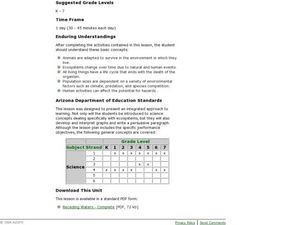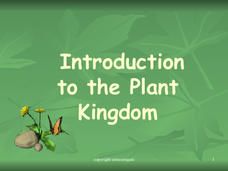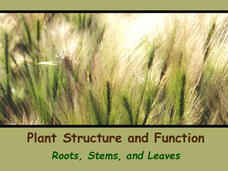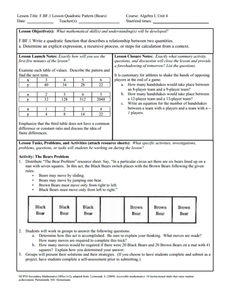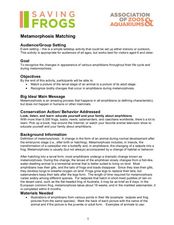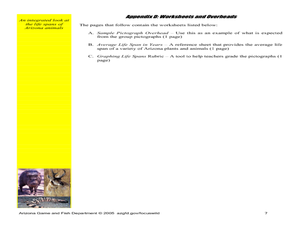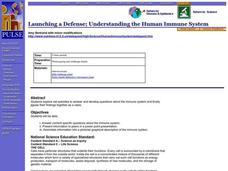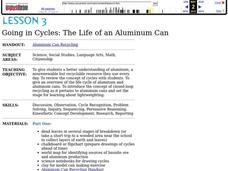Curated OER
Experiment to Mimic the Digestive System
What happens to the food that we eat? Middle-school life science learners delve into the digestive process by completing this laboratory activity. They cut a cheese sandwich into smaller parts to represent chewing, smash it to mimic...
Curated OER
Going in Cycles: The Life of an Aluminum Can
Students explore the life cycle of aluminum cans. In this recycling instructional activity, students review the manufacturing process and how to make a closed loop cycle. Students also have the opportunity to present what they've...
Curated OER
The Energy of Life in Zebrafish
Students study the stages of development of an unknown organism. In this zebrafish lesson, students examine and collect data as they use microscopes to view a zebrafish embryo.
Curated OER
Human Genetics-- Complete the Sentences
In this science worksheet, students demonstrate basic knowledge of human genetics by completing 6 sentences. There is no information on the page but a word bank is provided.
Curated OER
Hawaii's Sea Turtle Exploration
Students investigate the life cycle and body parts of Hawaii's sea turtles. In this sea turtle lesson, students watch a video about the turtle life cycle and make a model of a "Honu," sea turtle. They complete an associated worksheet.
Curated OER
Receding Waters
Students explore the effect of environmental factors on ecosystems. In this wildlife and ecology lesson, students identify and describe the stages in a frog's life cycle. Students participate in a simulation demonstrating the impact of...
NOAA
I Can't Breathe!
The Gulf of Mexico dead zone, an area of low oxygen that kills marine life, costs the United States $82 million every year. Young scientists research anoxic ocean environments then come up with a hypothesis for the cause of the Gulf of...
Curated OER
Fungi
Why did the mushroom go to the party? Because he was a fun guy! Biology learners study fungi while completing this worksheet. Structure is compared to that of other life forms. The life cycle is displayed with colorful diagrams for...
Curated OER
West Nile Virus-What is the Risk?
Begin with an online pre-quiz about West Nile Virus. Using a fictional scenario, young epidemiologists read how it is transmitted and examine the stages of the life cycle of a mosquito. They imagine that they are members of the Centers...
Curated OER
Birth, Growth, and Development
Students study the growth of humans and animals and their various stages. In this developmental lesson students study the life cycle and what that is in humans.
BBC
Ourselves
Young biologists identify parts of the body, sort humans from other animals, and list the difference they see. Learners are split up into groups of three, and each group must find pictures in magazines of humans and other animals. They...
Biology Junction
Introduction to the Plant Kingdom
Plants provide humans with food, shelter, and medications. Scholars gain a better appreciation for plants after learning their functions, divisions, and early ancestors. Each sub-topic includes slides highlighting vocabulary and...
Biology Junction
Plant Structure and Function: Roots, Stems, and Leaves
Scientists found fossils of plants more than 420 million years old—but plants existed for up to 100 million years prior to these fossils. Learn about the importance of plants to the entire planet. Viewing a presentation helps scholars...
Biology Junction
Cnidarians and Ctenophorans
Cnidaria is a broad phylum of 11,000 different species from jellyfish to coral. Most Cnidarians are marine species with a few freshwater examples. A lesson presentation explains the important characteristics of different species of both...
Curated OER
Bears
Learners complete a variety of bear-related activities. They sort and graph teddy bears, distinguish between real and non-real bears and research bear life cycles and habitats.
Curated OER
Metamorphosis Matching
Young scholars view pictures of animals as they complete the metamorphosis from a larva to an adult. In this metamorphosis lesson plan, students view pictures and in the end are able to match pictures of a larva stage to an adult stage...
Curated OER
Charting Animal Life Spans
Second graders research animal life spans and complete related math activities. In this life span lesson plan, 2nd graders read How Many Candles and discuss life spans. Students arrange animal cards based on their life spans. Students...
Curated OER
Dietary Supplements and the Chemistry of Life
Students study the effects of dietary supplements on bodily functions. In this health lesson plan students calculate their caloric needs and research dietary supplements.
Curated OER
Launching a Defense; Understanding the Human Immune System
Young scholars research online to answer and develop questions about immune system, create Powerpoint presentation to share information with classmates, and assimilate information into pictorial and/or graphical description of immune...
Curated OER
BOTTOMS UP?
Pupils view a Magic School Bus video that teaches about the digestive system. They create a life-size model of the digestive system.
Curated OER
Sustainability and Extinction
Galapagos Penguins are the only penguins on earth that live north of the equator (in the wild). In this last lesson plan a discussion on how the Galapagos islands developed their populations and diversity sparks the introduction. Two...
Curated OER
I Wonder What Would Happen if Lots of Manduca Lived in a Small Place...
Students discuss the reasons why humans fight and look for similiarties in animals. They make predictions on what they think will happen when they observe insect crowding. They make conclusions about their predictions to end the lesson.
Curated OER
A Look at the Life That Electronics Lead
In this comprehension activity, students fill in ways on a graphic organizer that people or companies can conserve energy, reduce waste or minimize the impact to the environment. Next, students solve 3 "environmental" math word problems.
Curated OER
Going in Cycles: The Life of an Aluminum Can
Young scholars investigate the manufacture of aluminum cans and consider the energy and resources saved when the cans are made from recycled material. They explore the concept of closed-loop recycling using charts, worksheets and...







